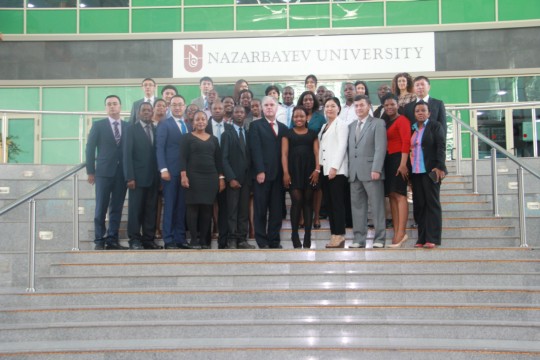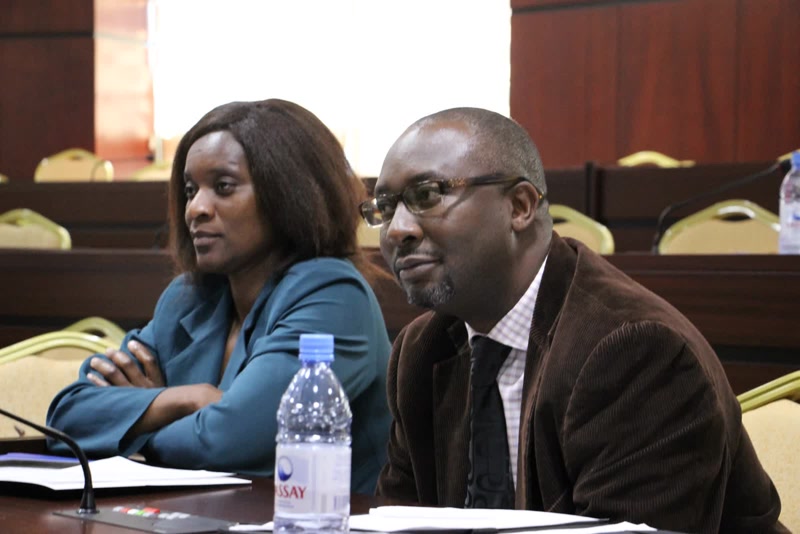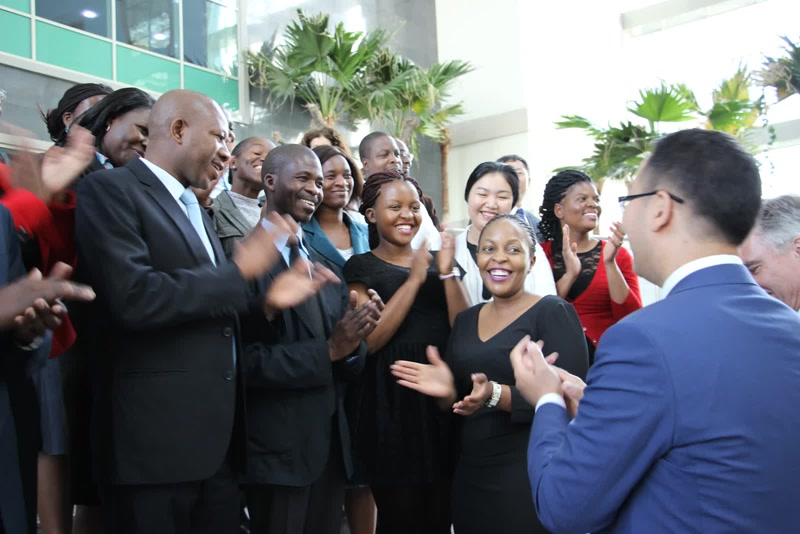ASTANA – The closing ceremony of an international seminar on public health was hosted in Nazarbayev University, reported the United Nations Development Programme (UNDP) press service in Kazakhstan. The university’s Centre for Life Sciences (CLS) of the National Laboratory of Astana trained 24 professionals from seven African countries July 20-31 in areas of epidemiology, biomedicine and public health.
Representatives of the Kazakh Ministry of Foreign Affairs, UNDP and trainees from Botswana, Ethiopia, Kenya, Malawi, Swaziland, Tanzania and Zimbabwe attended the ceremony.
“This is the first time that we are conducting a training seminar for international professionals. Researchers from the Centre for Life Sciences gave lectures and shared knowledge and experience in epidemiology, biomedicine and public health, with new requirements of world healthcare having been taken into consideration,” said CLS Director Zhaksybai Zhumadilov.
The goal of the seminar was to acquire system-based theoretical and practical knowledge and skills in the three areas. The conference contained a course of lectures and workshops delivered by leading professors and PhDs from the school’s private facility. Participants valued the opportunity to attend lectures by Nazarbayev University President Shigeo Katsu, Dean of the School of Medicine Massimo Pignatelli and South African Republic Ambassador Shirish Soni.
English writer Samuel Johnson once said, “Knowledge is of two kinds. We know a subject ourselves, or we know where we can find information on it,”emphasising the necessity of providing an appropriate platform to improve people’s professional skills. In this regard, seminar participants learned methods of conducting research in epidemiology and biomedicine and will be able to apply their new knowledge and skills in their countries.
Botswana nurse-midwife Mabole Masweu appreciated Kazakhstan’s strengths in medical research.
“I feel that some of the things that maybe we’ve been taking lightly, we are now going to take them to the next level. We are now going to do more research to inform the interventions that we already have, because we cannot in any way divorce public health from research. Whatever it is that we do, it should have a background or it should be made better by research so that we know that evidence medicine is the key. Kazakhstan is very strong [in evidence-based research] and most of the lectures that we had in these two weeks were research-based. Things that we might think are very, very minor, when we now do research we can come up with a solution in the twinkling of an eye,” she said.
During the past 20 years of cooperation, UNDP has assisted Kazakhstan in preparing key national and regional policy documents, legislative drafting, institutionalisation and capacity-building of authorities at different levels of government. Today, the Kazakh government and UNDP work jointly to strengthen ties and seek new ways to boost comprehensive cooperation.
“From the UN side we are very happy to join Kazakhstan and the government of Kazakhstan in highlighting the emergence of Africa and the importance of partnership between countries that are pretty far away. I recently travelled from Africa to Astana and it took a long time and it’s not so easy. But I think through bridging activities like these we bring your continent and countries closer with countries in Central Asia on this continent. From the UN-country team side, and UNDP in Kazakhstan in particular, we will keep working to build these bridges and I think especially together with the government of Kazakhstan and civil society of Kazakhstan, as we move into the period of the Sustainable Development Goals,” said UN Resident Coordinator and UNDP Resident Representative Stephen Tull.
During 2015, UNDP and the Ministry of Foreign Affairs will also organise a series of professional update courses in Kazakhstan in the fields of oil and gas exploration, public health and Kazakh agriculture for specific individuals from a number of African countries. The project envisions two more short-term thematic trainings in agriculture and oil and gas exploration, with field visits for 90 students from 23 African nations.
The UNDP has been also assisting Kazakhstan in the establishment of KazAID, the new national agency for international aid, which marks an important evolution in the country’s significance regionally and globally. The support and partnership will focus on Central Asian and African countries, as well as small island developing states, the UNDP said.




